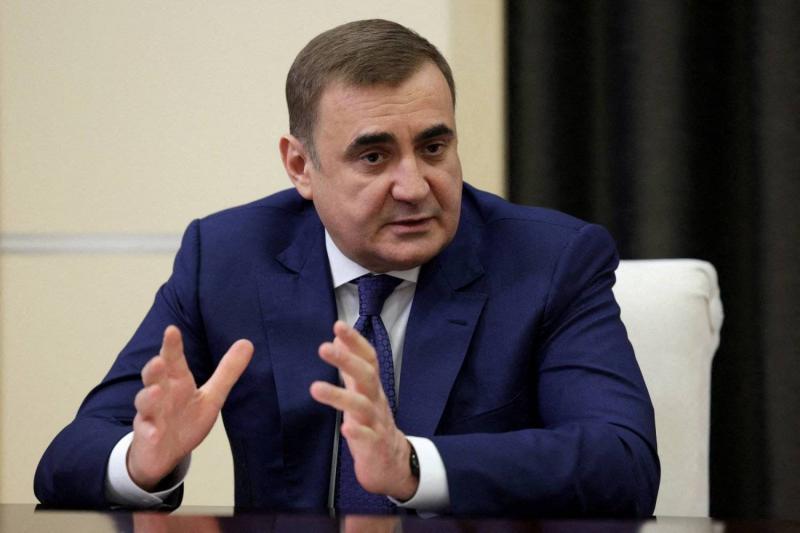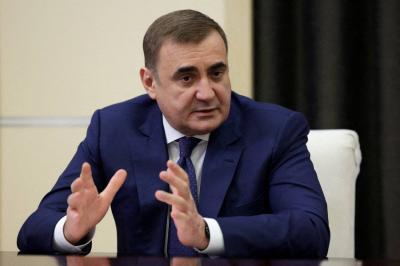The issue of succession for Russian President Vladimir Putin after his presidential term raises extensive speculation and discussions on both the Russian and international political scenes. Having been a dominant figure in Russian politics for many years, many wonder who the potential candidate for the presidency might be after his rule, and whether Putin is preparing a successor to ensure the continuity of governance and stability in Russian politics.
Political analyst Nikolai Petrov, in a report for the Royal Institute of International Affairs (Chatham House), notes that Putin appointed Alexey Dyumin as Secretary General of the State Council on May 29, succeeding Igor Levitin, a respected and influential figure who held the position since September 2012. Levitin was appointed as an advisor to President Putin, a role that is significantly less powerful and prestigious.
Since Dyumin's appointment, rumors have increased that Putin might be preparing to hand the presidency over to him. But who is Dyumin, and why should discussions about Putin's succession focus on him? Dyumin is sometimes described as a "wardrobe," both in physical appearance and demeanor. He previously served as Putin's personal bodyguard, with responsibilities that included playing hockey with the president in the "night league," where he guarded the opposing team's goal, ensuring that Putin always scored.
Dyumin then served as Deputy Minister of Defense but held the position for only a month before becoming the governor of Tula Region from 2016 to 2024. In that role, he did not directly manage regional issues but acted as a "wedding general," a Russian term referring to someone who has an official status with all associated symbols, yet primarily plays a decorative role.
More intriguingly, he is said to have played a crucial role in the annexation of Crimea from Ukraine in 2014 when he was head of the special operations forces, and he is believed to have aided in managing a peaceful settlement during the attempted coup by Yevgeny Prigozhin in 2023. Petrov asserts that Dyumin can generally be viewed as a bureaucrat loyal to Putin, trained under the Kremlin's direction.
Petrov describes Dyumin's elevation as the second significant change in leadership amidst Putin's reshaping of the elite, following the appointment of Andrei Belousov as Defense Minister to replace Sergey Shoigu, who was then appointed Secretary General of the Russian Security Council to succeed Nikolai Patrushev. Putin established the State Council in 2000 as an advisory body comprising executive officials, including regional governors, to discuss wide-ranging strategic issues.
With the Russian constitutional amendments in 2020, there was much speculation that the council might serve as an institution allowing Putin to continue overseeing governance after leaving the presidency. The position of Secretary General does not confer actual powers but rather offers the holder an opportunity to participate in complex bureaucratic activities by selecting personnel, influencing the council's agenda, and overseeing the implementation of decisions.
Petrov notes that Dyumin's replacement of Levitin undoubtedly represents a significant step for the former personal guard; however, it indicates a weakness in the institution, as Dyumin lacks the skills or support necessary to engage successfully in the bureaucratic game as Levitin did. Petrov adds that Dyumin's promotion is part of a pattern in which Putin has increasingly relied on members of the "Praetorian Guard" for important positions, as they are individuals he can trust completely.
Indeed, Putin's reshuffling is ongoing, with changes occurring in various positions within the Ministry of Defense in recent months, replacing Shoigu's team. However, Dyumin is not the only person in Putin's inner circle to have received a significant promotion before or during the war in Ukraine. Dmitry Mironov was appointed as an aide to the president in October 2021, Alexander Korenkov became Minister for Emergency Situations in May 2022, and Valery Bykalov was appointed head of the Federal Customs Service in May 2024.
Dyumin's appointment following these individuals suggests that Putin does not consider him the best among them. In summary, Dyumin has never been Putin's first choice, and it is unlikely that his appointment to his new position signifies any special status in the Russian president's thinking regarding succession. Instead, Dyumin's inclusion in discussions about potential successors seems to result from a specific media campaign initiated by the Kremlin, the purpose of which remains unclear.
Petrov argues that crucially, Putin can appoint anyone he wants as his successor. There are no criteria or rules constraining him, and it is improbable that he would indicate his choice indirectly before making a final decision. He adds, "Putin retains more power by keeping the elite and allies in a state of speculation, with no certainty over who is supportive and who is not." The speculation about Putin's successor reaffirms the nature of the political system as a personal authoritarian rule without an institutional succession plan.
The rumors themselves play a role in fostering further ambiguity, defending the president's position, and preventing effective planning that might undermine or threaten his retirement. Should Dyumin assume the presidency, which is unlikely, it is reasonable to presume he would serve much as he did when he was governor of Tula, adorned with the trappings of power but without real oversight or understanding. This means that another figure within the Russian government would make the decisions.




